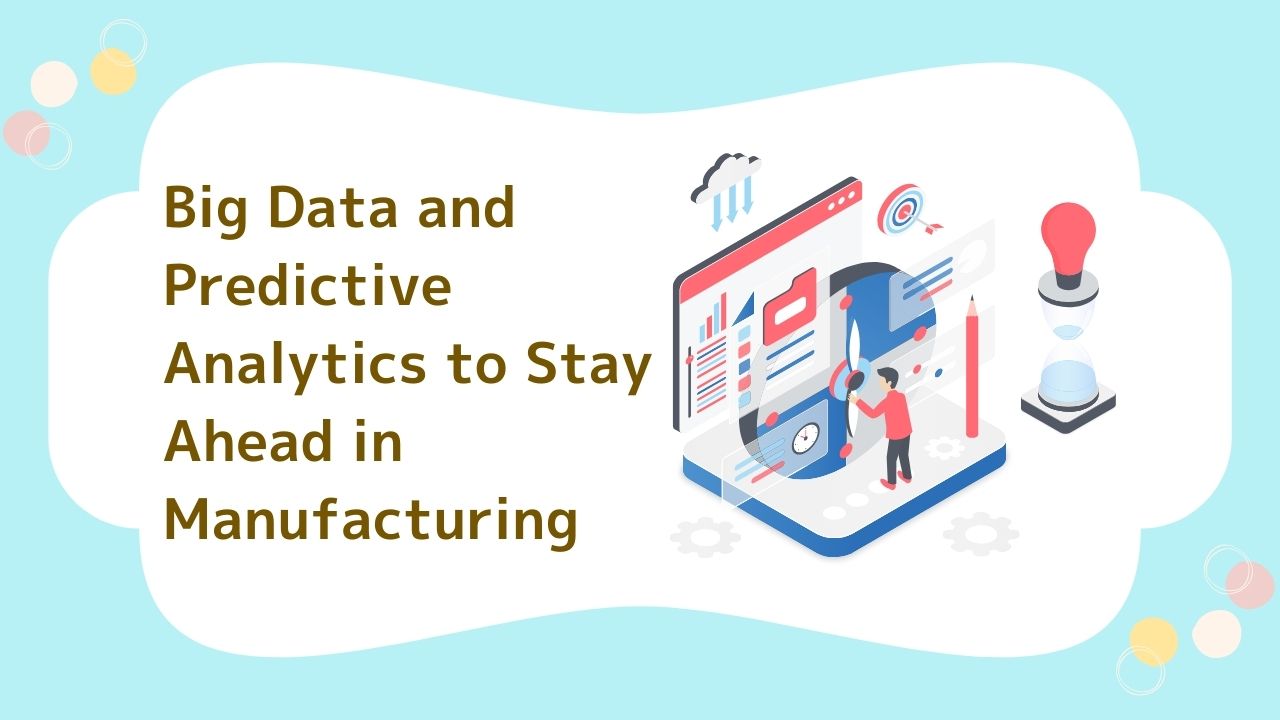製造業の購買担当者がAIにかわることってあり得るの?

Manufacturing companies are collecting huge amounts of data from their operations every day. With sensors on machines, environmental monitors, and other industrial IoT devices, factories generate terabytes of information constantly. This data holds valuable insights that can help manufacturing businesses optimize production, reduce downtime and costs, and gain a competitive advantage. By applying big data and predictive analytics techniques, manufacturers can turn these flooding data streams into actionable knowledge.

Big data refers to the very large volumes of information that modern manufacturing equipment and processes produce on a daily basis. It encompasses structured data like machine readings and quality metrics, as well as unstructured data from worker notes, documents, and sensor video feeds. The “three Vs” typically define big data – volume, referring to the enormous amounts of data; velocity, as it streams in real-time from sources; and variety, as it comes in many formats. For manufacturers, big data also has value, as tapping into these insights can benefit many areas of operations.
Collecting and storing manufacturing big data requires specialized infrastructure. Manufacturers are adopting big data platforms that can handle terabytes to petabytes of operational data cost-effectively. These platforms integrate data capture, storage, processing, and analytics capabilities in scalable, high-performance systems. They allow bringing together disparate machine, sensor, quality, and other production data in centralized warehouses for comprehensive analysis.
With big data platforms in place to manage manufacturing information assets, companies can then apply predictive analytics techniques. Predictive analytics uses statistical, machine learning and data mining methods to identify patterns and correlations in big data that can forecast future outcomes and behaviors. This allows manufacturers to move from reactive problem-solving to proactive, predictive maintenance and decision-making.
– Predicting equipment failures: Analytics models detect early warning signs and predict failures for critical assets like machines and tooling before they occur. This reduces unplanned downtime.
– Optimizing processes: Data insights reveal process abnormalities early and ways to optimize settings for quality, efficiency and throughput. This drives continual process improvement.
– Anticipating demand: Sales, customer, and market intelligence help accurately predict demand trends and proactively plan production schedules. This minimizes risks from inaccurate forecasting.
– Assessing quality issues: Quality data from the production line and customers is used to predict, localize and resolve quality problems before they impact productivity or customer satisfaction levels.
– Optimizing inventory: Demand signals and supply chain data help determine optimal inventory levels and product mix for different time periods, avoiding over- or under-stocking issues.
– Improving energy efficiency: Analytics reveals energy consumption patterns and inefficiencies, aiding initiatives to reduce manufacturing’s carbon footprint through optimized operations.
Implementing big data and predictive analytics programs requires significant preparation. Manufacturers must first assess their current data assets and enhance collection from various sources for comprehensive views. They also need to implement data management and analytics platforms for scaling to big data volumes. Partnerships with specialized system integrators can accelerate these foundational elements.
Starting with focused pilot projects in priority areas like predictive maintenance is recommended before company-wide deployments. Building competency in advanced analytics techniques like machine learning takes time and experimentation. Manufacturers also need to change mindsets and workflows to act upon predictive insights for true benefits realization. With a step-by-step approach and commitment to data-driven decision making, predictive analytics can profoundly transform manufacturing competitiveness.
In summary, the current data deluge from factories presents both a challenge and opportunity. By taming manufacturing big data with robust platforms and analytics, companies gain unmatched visibility into operations. Predictive analytics then enables translating those insights into strategic actions – securing competitive differentiation through new levels of production efficiency, quality and agility in today’s fast-paced markets. Those implementing these strategies will lead industry transformation and outperform slower-adapting peers.
調達購買業務の効率化だけでなく、システムを導入することで、コスト削減や製品・資材のステータス可視化のほか、属人化していた購買情報の共有化による内部不正防止や統制にも役立ちます。